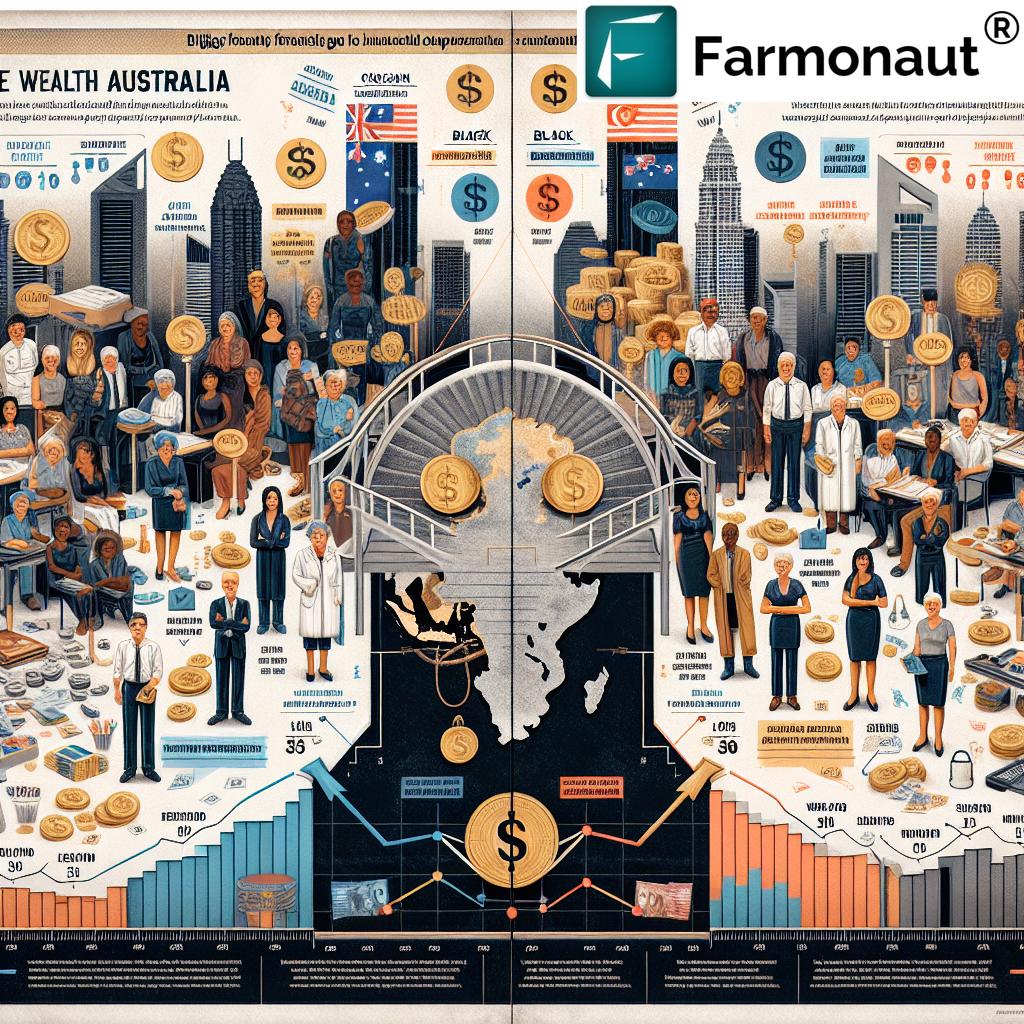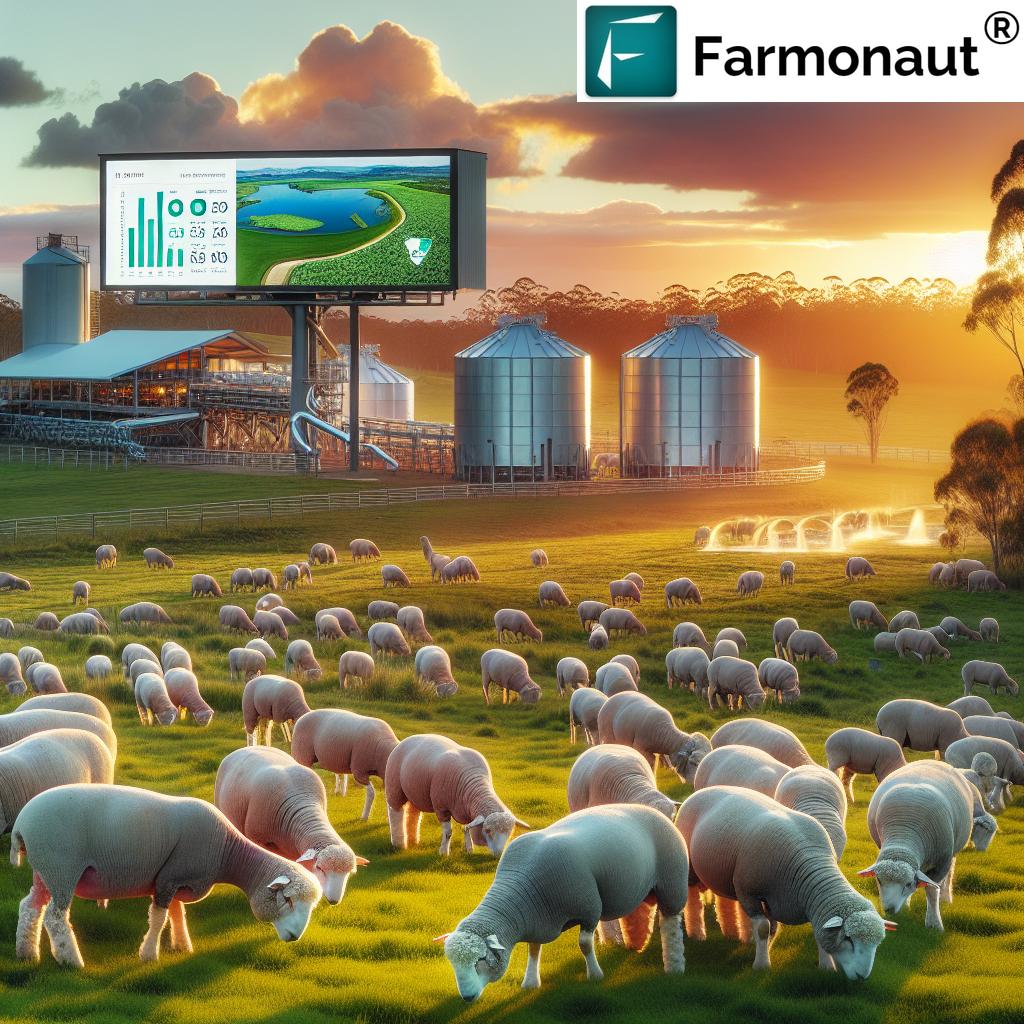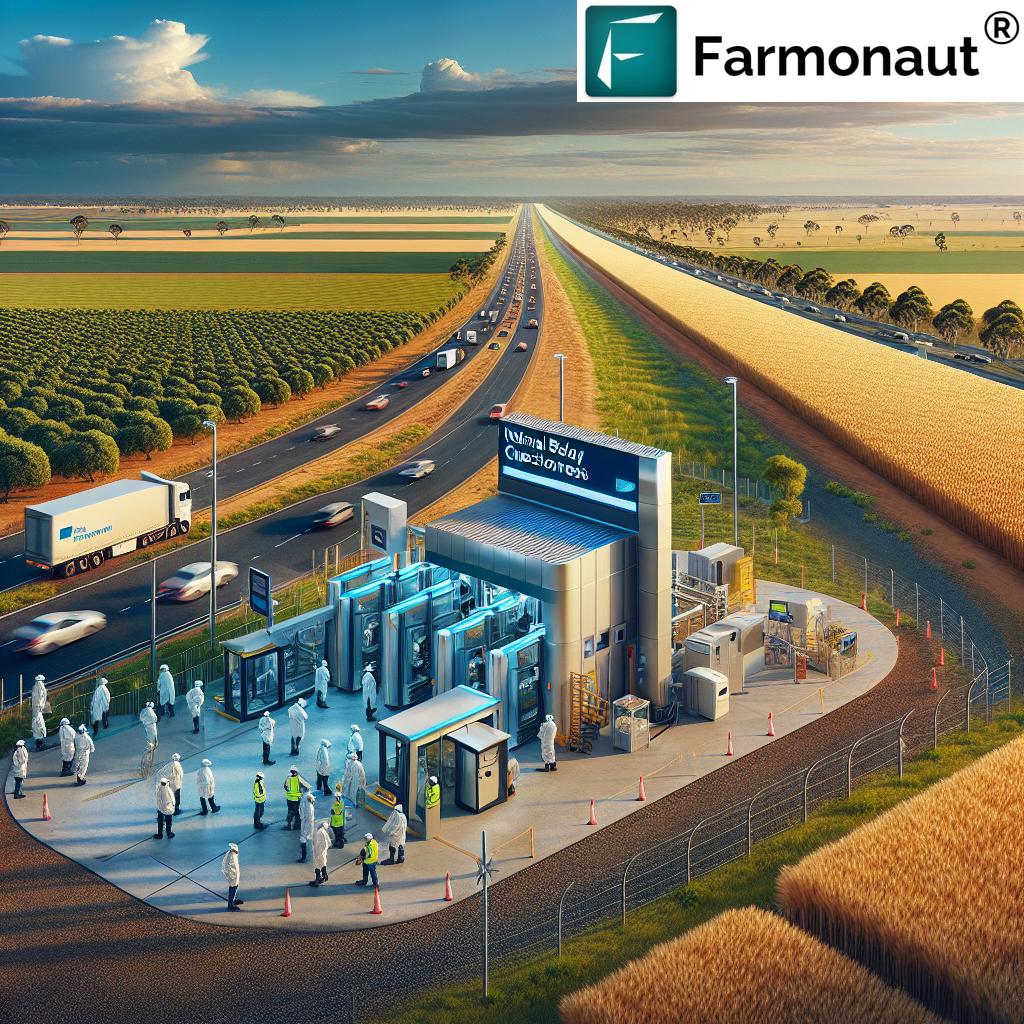Unlocking Sustainable Agriculture: Queensland’s Innovative Approach to Climate-Resilient Farming and Concessional Financing
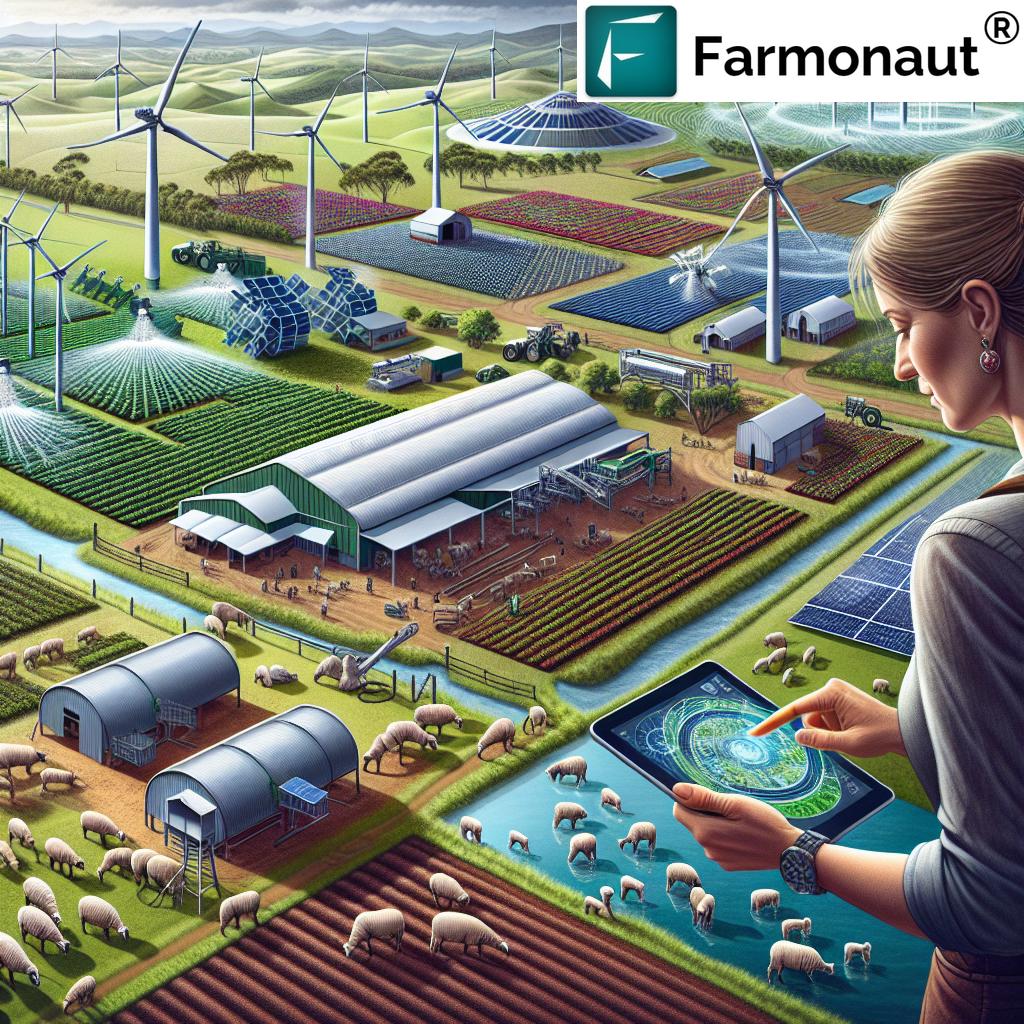
“Queensland’s agricultural financing review aims to support over 50% of farmers in adopting climate-resilient practices by 2030.”
In the face of increasing climate variability and economic challenges, the agricultural sector in Queensland is undergoing a significant transformation. We are witnessing a pivotal moment in rural economic development and agricultural innovation funding as the state embarks on a comprehensive review of its approach to sustainable agriculture financing and climate-resilient farming. This blog post delves into the intricacies of Queensland’s innovative strategies, exploring how concessional loans for farmers are being reimagined to address drought challenges, enhance productivity, and support renewable energy initiatives in agriculture.
The Changing Landscape of Agricultural Financing
The review of the Operation of the Regional Investment Corporation Act 2018 marks a significant milestone in Queensland’s journey towards sustainable agriculture. This act, which has been instrumental in shaping rural economic development, is now under scrutiny to ensure it meets the evolving needs of the agricultural sector. The primary focus is on adapting financing mechanisms to better support farmers in the face of climate change and economic uncertainties.
- Concessional loans for farmers are being restructured to prioritize climate-resilient practices
- New eligibility criteria are being proposed to foster innovation and sustainable farming methods
- Governance structures are being reevaluated to ensure efficient and effective fund distribution
As we navigate these changes, it’s crucial to understand the role of technology in modern agriculture. Platforms like Farmonaut offer innovative solutions for farm management and monitoring, aligning perfectly with Queensland’s vision for a tech-driven, sustainable agricultural future.
Climate-Resilient Farming: A New Paradigm
Climate-resilient farming is at the heart of Queensland’s agricultural revolution. This approach encompasses a range of practices designed to withstand the impacts of climate change while maintaining or improving productivity. Key aspects include:
- Drought-resistant crop varieties
- Water-efficient irrigation systems
- Soil conservation techniques
- Integrated pest management
The state’s commitment to climate-resilient farming is reflected in its innovative financing mechanisms. Concessional loans are now being tailored to support farmers in adopting these practices, with favorable terms for those who implement sustainable methods.
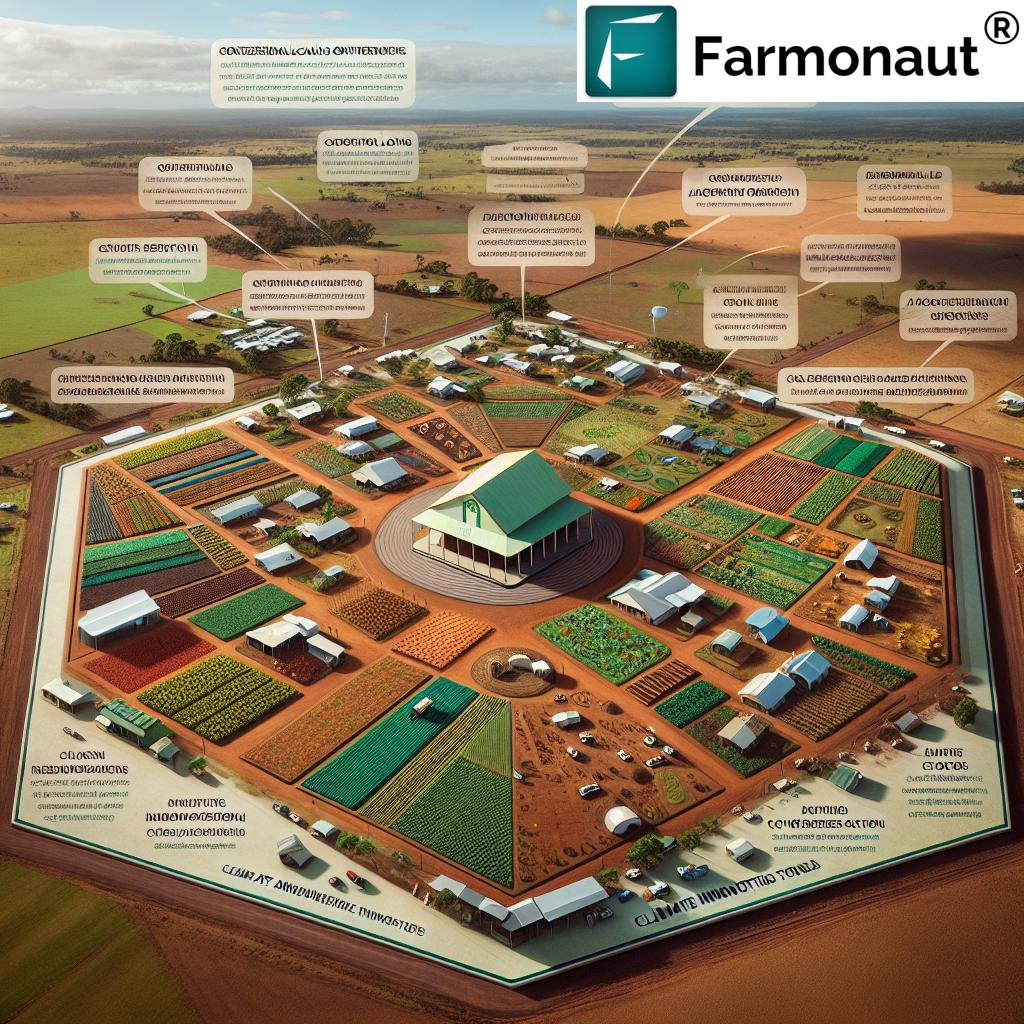
Renewable Energy in Agriculture: Powering the Future
Queensland’s agricultural sector is embracing renewable energy as a means to reduce emissions and operational costs. The state’s financing initiatives are increasingly focusing on supporting farmers in transitioning to clean energy sources. This includes:
- Solar-powered irrigation systems
- Wind energy for farm operations
- Biogas production from agricultural waste
These initiatives not only contribute to emission reduction but also enhance the overall sustainability and profitability of farms. The integration of renewable energy aligns with global trends in sustainable agriculture and positions Queensland as a leader in eco-friendly farming practices.
For farmers looking to optimize their operations and embrace these new technologies, Farmonaut’s Android app and iOS app offer valuable tools for monitoring crop health and managing resources efficiently.
Concessional Loans: Reimagining Agricultural Finance
The concept of concessional loans for farmers is being revolutionized in Queensland. These loans, characterized by below-market interest rates and favorable terms, are being redesigned to:
- Encourage adoption of climate-resilient farming practices
- Support investment in renewable energy infrastructure
- Facilitate the implementation of water-saving technologies
- Promote diversification of farm income sources
The new loan structures are designed to be more flexible, acknowledging the diverse needs of different agricultural sectors and the varying challenges faced by farmers across the state.
“Concessional loans for sustainable agriculture in Queensland could potentially reduce farm emissions by up to 30% within 5 years.”
Eligibility Criteria and Governance: Ensuring Equitable Access
A critical aspect of the ongoing review is the reassessment of eligibility criteria for agricultural financing. The proposed changes aim to:
- Broaden access to funding for small and medium-sized farms
- Prioritize projects with significant environmental and economic impacts
- Encourage participation from indigenous farmers and communities
- Support young farmers entering the industry
Governance structures are also being reevaluated to ensure transparent and efficient fund allocation. This includes streamlining application processes, implementing robust monitoring systems, and establishing clear accountability measures.
For agricultural businesses looking to leverage data in their operations, Farmonaut’s API offers powerful tools for integrating satellite and weather data into existing systems.
Agricultural Infrastructure Investment: Building Resilience
Queensland’s approach to agricultural infrastructure investment is undergoing a significant shift. The focus is on developing infrastructure that not only enhances productivity but also builds resilience against climate variability. Key areas of investment include:
- Modernization of irrigation systems
- Construction of climate-controlled storage facilities
- Development of robust transportation networks
- Implementation of advanced weather monitoring systems
These investments are crucial in ensuring that Queensland’s agricultural sector can withstand future challenges while maintaining its competitive edge in global markets.
Emission Reduction Strategies in Agriculture
Reducing emissions in the agricultural sector is a top priority for Queensland. The state is implementing a multi-faceted approach that includes:
- Promoting carbon sequestration through improved land management practices
- Encouraging the use of low-emission farm equipment
- Supporting research into methane reduction in livestock
- Incentivizing the adoption of precision agriculture techniques
These strategies not only contribute to Queensland’s climate goals but also position its agricultural products favorably in environmentally conscious markets.
Farmers looking to implement precision agriculture techniques can benefit from Farmonaut’s web application, which provides valuable insights for optimizing farm operations.
Drought Preparedness: A Proactive Approach
Queensland’s innovative financing mechanisms are placing a strong emphasis on drought preparedness. This proactive approach includes:
- Funding for the development of water-efficient farming systems
- Support for the implementation of drought-resistant crop varieties
- Investment in water storage and management infrastructure
- Promotion of diversified income streams to reduce drought vulnerability
By focusing on preparedness, Queensland aims to reduce the devastating impacts of drought on its agricultural sector and rural communities.
Agribusiness Productivity Solutions: Embracing Innovation
Queensland’s approach to boosting agribusiness productivity is centered on embracing innovative solutions. This includes:
- Adoption of AI and machine learning in farm management
- Implementation of Internet of Things (IoT) devices for real-time monitoring
- Use of drones and satellite imaging for crop assessment
- Integration of blockchain technology for supply chain transparency
These technological advancements are being supported through targeted financing and training programs, ensuring that Queensland’s farmers are at the forefront of agricultural innovation.
Impact on Specific Industries: Sheep, Wool, and Goat Production
The innovative financing approaches in Queensland are having a significant impact on specific industries, particularly sheep, wool, and goat production. These sectors are benefiting from:
- Tailored financial products addressing unique industry challenges
- Support for sustainable grazing practices
- Investment in genetic improvement programs
- Funding for value-added product development
These targeted interventions are crucial in ensuring the continued growth and sustainability of these important agricultural sectors.
Food Production and Land Use: Balancing Act
Queensland’s approach to sustainable agriculture financing is carefully balancing the need for increased food production with responsible land use. This involves:
- Promoting sustainable intensification of agricultural practices
- Supporting agroforestry and mixed farming systems
- Encouraging the restoration of degraded agricultural lands
- Implementing stricter controls on land clearing for agriculture
These measures aim to ensure that Queensland can meet its food production goals while preserving its natural ecosystems and biodiversity.
The Broader Rural Economy: Ripple Effects
The impact of Queensland’s innovative approach to agricultural financing extends beyond the farm gate. The broader rural economy is experiencing positive ripple effects, including:
- Creation of new job opportunities in agtech and related fields
- Increased investment in rural infrastructure
- Growth of support industries such as agricultural consulting and technology services
- Enhanced resilience of rural communities against economic shocks
These developments are crucial in ensuring the long-term viability and prosperity of Queensland’s rural areas.
Comparative Analysis of Climate-Resilient Farming Initiatives in Queensland
| Initiative Name | Primary Focus Area | Eligibility Criteria | Estimated Funding (AUD) | Expected Emissions Reduction (%) | Potential Productivity Increase (%) | Target Industries | Implementation Timeline |
|---|---|---|---|---|---|---|---|
| Drought Resilience Fund | Drought Preparedness | All farmers in drought-prone areas | 100 million | 10 | 15 | All agricultural sectors | 2024-2028 |
| Renewable Energy in Agriculture Program | Clean Energy Adoption | Farms with high energy consumption | 50 million | 30 | 20 | Dairy, Horticulture | 2023-2026 |
| Sustainable Wool Production Initiative | Sustainable Grazing | Wool producers | 30 million | 15 | 10 | Sheep, Wool | 2024-2027 |
| Smart Farming Technology Grant | Precision Agriculture | Tech-savvy farmers, all sectors | 75 million | 20 | 25 | All crops, Livestock | 2023-2025 |
| Water-Efficient Irrigation Fund | Water Conservation | Irrigated crop farmers | 80 million | 5 | 30 | Cotton, Sugar cane, Horticulture | 2024-2029 |
Conclusion: A Sustainable Future for Queensland Agriculture
Queensland’s innovative approach to sustainable agriculture financing and climate-resilient farming represents a bold step towards a more resilient and prosperous agricultural sector. By reimagining concessional loans, prioritizing climate-resilient practices, and embracing technological innovation, the state is setting a new standard for sustainable agriculture.
As we move forward, the success of these initiatives will depend on continued collaboration between farmers, policymakers, and technology providers. The integration of advanced technologies, such as those offered by Farmonaut, will play a crucial role in realizing the full potential of these innovative approaches.
Queensland’s journey towards sustainable and climate-resilient agriculture is not just about preserving an industry; it’s about securing a sustainable future for generations to come. As these initiatives take root and grow, they promise to transform the landscape of Australian agriculture, setting an example for the world to follow.
FAQ Section
- Q: What are the main goals of Queensland’s agricultural financing review?
A: The main goals include supporting climate-resilient farming practices, enhancing productivity, promoting renewable energy adoption, and improving drought preparedness. - Q: How are concessional loans being reimagined for farmers?
A: Concessional loans are being restructured to prioritize sustainable practices, offer more flexible terms, and support investments in climate-resilient technologies and infrastructure. - Q: What types of renewable energy initiatives are being supported in agriculture?
A: Initiatives include solar-powered irrigation systems, wind energy for farm operations, and biogas production from agricultural waste. - Q: How is Queensland addressing the challenge of drought preparedness?
A: Queensland is focusing on funding water-efficient farming systems, supporting drought-resistant crop varieties, and investing in water storage and management infrastructure. - Q: What impact are these initiatives expected to have on emissions reduction?
A: The initiatives aim to reduce farm emissions by promoting carbon sequestration, encouraging low-emission equipment use, and supporting research into methane reduction in livestock.
For more information on how technology can support sustainable agriculture, visit Farmonaut’s API Developer Docs.










